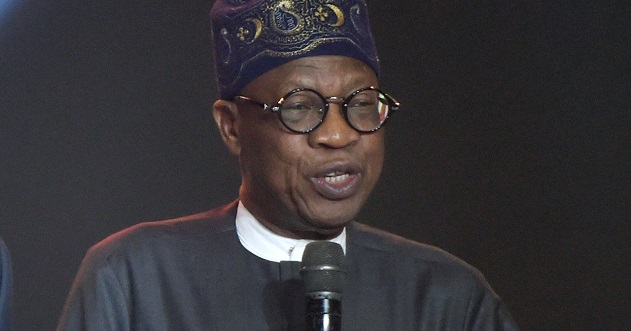News
How farmers/herdsmen crisis affected governance – Lai Mohammed

The Minister of Information and Culture, Alhaji Lai Mohammed, has lamented the impact negative media reportage of the persistent farmers/herdsmen crisis has had on governance in the country.
According to the minister, the Federal Government has had to engage in lobbying to manage the negative reportage, especially by the foreign media.
Mohammed stated this on Thursday during his appearance before the House of Representatives’ Committee on Information, National Orientation, Ethics and Values, adding that the Federal Government had to engage an international public relations consultant to manage the bad press.
According to him, the government had to send delegations to United States of America and United Kingdom to execute media campaigns.
“This government has been denied loans because of the misinformation that have been spread out there,” he said.
Explaining why the Federal Government engaged foreign media and PR lobby consultants, the minister said: “The world has become a global village and what happens in Nigeria today reverberates all over the world. And we, in the administration, face a lot of challenges, especially from the comments of the foreign media, from the sometimes hostile positions of foreign governments, even foreign parliaments. So, it is the duty of the Ministry of Information to regularly lobby and address international media in the countries.
Read also: Because I joined APC, Bishops who ‘dined with me for 8 years’ abandoned me- Akpabio
“I remember that in 2018 we made two trips to the UK and two trips to the US, and these two trips helped tremendously in actually helping the people in the Diaspora and foreign governments to understand the real dynamics of the herdsmen/farmers clashes.
“Until we got there, the impression held by many of them was that the thing was Christians/Muslims, North/South and that time we had to book for interviews with CNN, BBC, Aljazeera, Reuters and AFP. I think it is an important part of governance so that if you cannot mould their opinions, at least it can give them the opportunity of hearing our own side of the story.
“I am sure you have all noticed a lot of very erroneous editorials that have been carried by some highly respected pens like the New York Times, Boston Globe, which do not actually represent the true situation in Nigeria. So, we go there, not just for government but to give the correct impression about what goes on in this government,” he said.
“Until we went there, generalisation was that, what was happening in Nigeria was religious. I always give them two examples to show that what happens in Nigeria has nothing to do with religion. I give them the example of Kebbi State, one-third of all the inmates in Kebbi prisons today are there as a result of farmers/herdsmen clashes, yet the farmers in Kebbi are Muslims and the herdsmen are Muslims.
“In the case of Zamfara State, where we have lost more lives than Taraba, Plateau and Benue put together, to rustling and kidnapping, the rustlers are Muslims, the victims are Muslims. So, we needed to put this in perspective.
“What we are dealing with is largely environmental. A country of 50 million people 50 years ago, today has a population of 200 million. In 1960 what was our population in Nigeria? 52 million. How many are we today? 180 million. Yet, the country has not expanded; on the contrary, it has contracted because we have lost land to desertification, we have lost land to flooding. Yet, 200 million people are supposed to use the same resources of land and water as 50 million people did.”
Join the conversation
Support Ripples Nigeria, hold up solutions journalism
Balanced, fearless journalism driven by data comes at huge financial costs.
As a media platform, we hold leadership accountable and will not trade the right to press freedom and free speech for a piece of cake.
If you like what we do, and are ready to uphold solutions journalism, kindly donate to the Ripples Nigeria cause.
Your support would help to ensure that citizens and institutions continue to have free access to credible and reliable information for societal development.






















